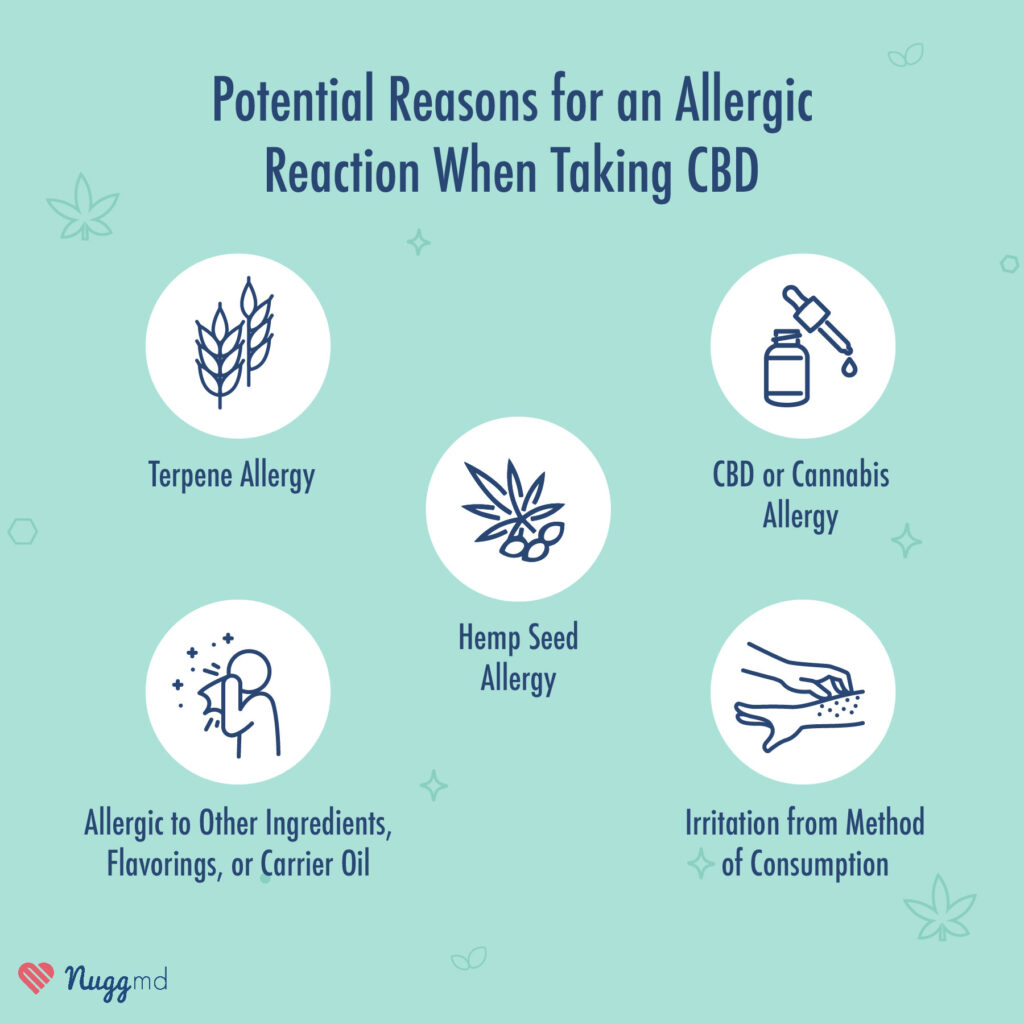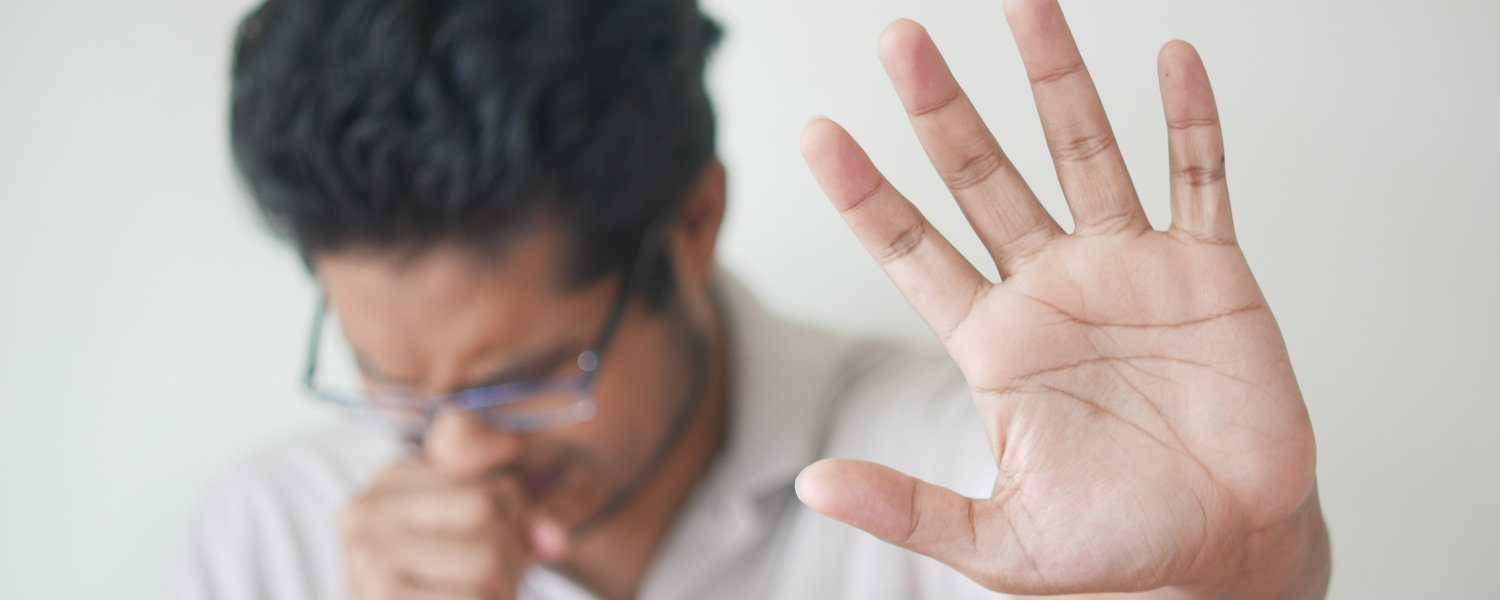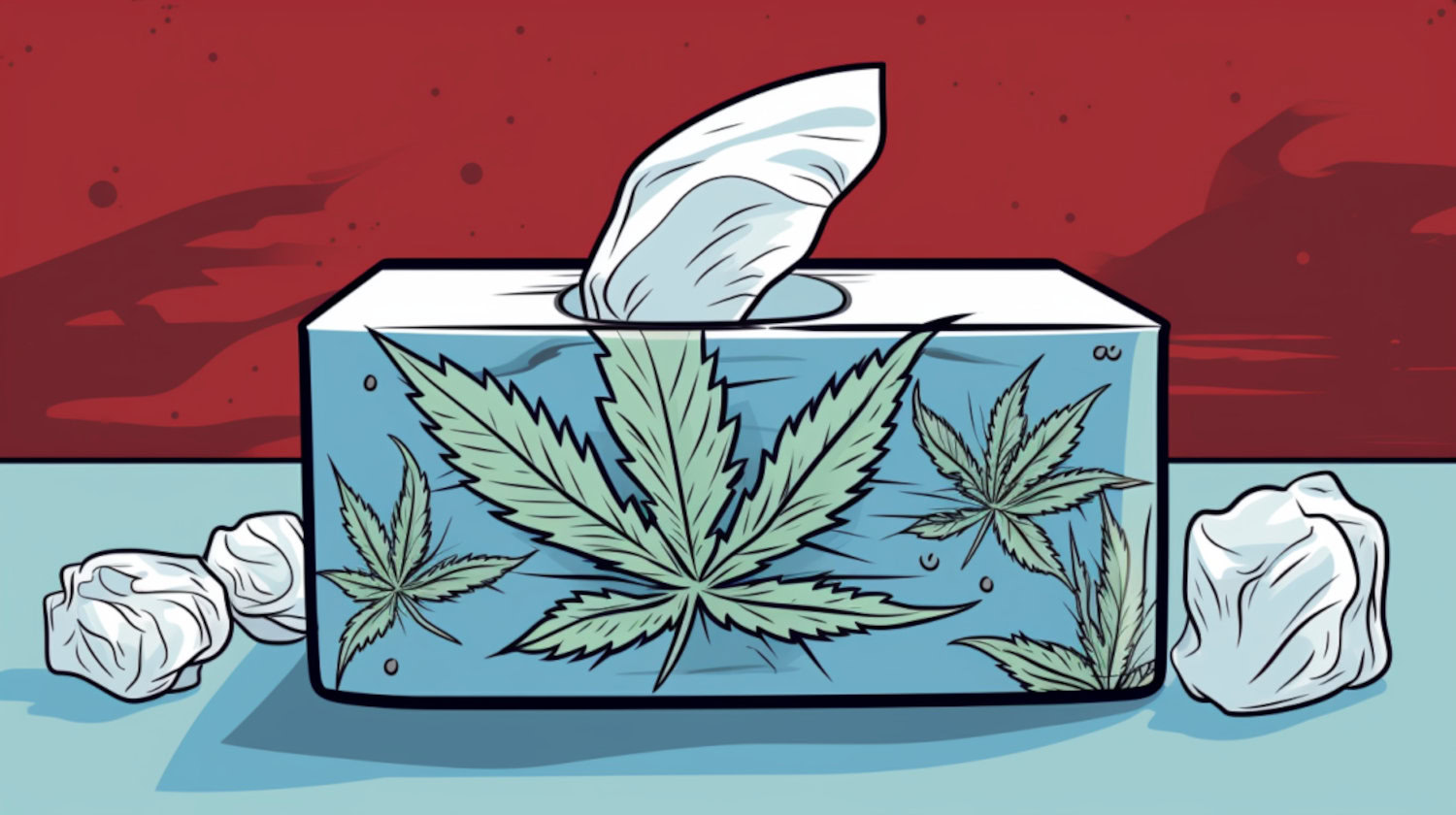CBD has experienced a massive boom in recent years. Of course, consumers are on the other side of all those dollars. Meanwhile, according to the Centers for Disease Control and Prevention, more than 25% of the US population have at least one allergy. And for those millions of people who may also be interested in trying CBD products, some people are sure to wonder if they could experience an allergic reaction to CBD.
While CBD is generally considered safe, some people may experience adverse reactions, and some of the other ingredients found in many CBD products could trigger allergic responses. Not only that, as cannabis allergies become increasingly acknowledged by medical researchers, questions regarding CBD are inevitably thrown into the mix.
What is a CBD Allergy?
CBD, or cannabidiol, is a type of cannabinoid, a class of compounds found in the cannabis plant. Cannabinoids get their name because they interact with the body's endocannabinoid system, which regulates various functions such as mood, appetite, memory, pain, and sleep.1
While both are cannabinoids, CBD is not the same as THC. THC is responsible for the psychotropic effects commonly associated with cannabis use. CBD, however, is not intoxicating and, therefore, does not produce the characteristic “high.” Even so, this doesn't mean CBD is inert. Far from it, in fact. CBD is commonly used for a wide variety of applications, including managing pain, anxiety, and inflammation.2 Some people also use it to promote relaxation and improve their sleep.
While CBD is generally considered safe, it is possible to be allergic to it. Researchers are starting to investigate the potential for CBD allergies in more detail now that the CBD industry, and the cannabis industry writ large, are exploding.3
As of this writing, the prevalence and nature of CBD allergies have yet to be fully understood.4 For instance, some studies suggest that people may be allergic to terpenes (the aromatic compounds found in cannabis) rather than cannabinoids, like CBD.5 Still, as with other types of allergies, it can vary from person to person.
What Can Cause an Allergic Reaction to CBD?

If you have a known allergy to cannabis or other plants, you may be more likely to have an allergic reaction to CBD. And while it’s extremely uncommon, it's also possible to develop an allergy to CBD even if you have no history of cannabis allergies or allergies to anything else.
There are various reasons a person could experience an allergic reaction to CBD products. The most probable is that they’re not allergic to the CBD itself, but rather, another ingredient, such as flavorings and carrier oils commonly found in CBD products, which trigger an allergy flare-up in many people.
If you find yourself experiencing adverse reactions to CBD, it's much more likely that these other ingredients are to blame rather than the CBD. For example, many people are allergic to coconut oil, a standard carrier oil used in CBD products. So, if you're experiencing any reactions, don't jump to conclusions; you may not be allergic to CBD.
Likewise, many people are allergic to certain terpenes found in cannabis and other plants, which could cause an allergic reaction following CBD consumption.6 It's also worth noting that, while rare, some people may be allergic to hemp seeds, which are frequently used in CBD products. Finally, different forms of CBD products may affect people differently. For example, smoking CBD can cause lung irritation and coughing, which may trigger a respiratory allergy (or symptoms resembling it) in some people.
While statistics on CBD allergies, specifically, are not yet widely available, studies on cannabis allergies suggest that they are relatively rare.7 For example, one case study investigated "A case of Epidiolex (FDA approved CBD)-related skin rash that developed in a delayed fashion in a 23-year-old female with medically refractory epilepsy."8 The authors acknowledged that this side effect was rarely reported in the Epidiolex clinical trial data and may not represent a significant finding or common symptom of CBD use.
As is the case for much cannabis-related research, many more studies are needed before anyone can draw definitive conclusions regarding CBD allergies.
What are the Signs of a CBD Allergy?
For people who are experiencing an allergic reaction to CBD, chances are the symptoms will resemble that of many other allergies. While allergic reactions can vary from person to person and depend on the allergen in question, common symptoms include:
- Sneezing
- Runny or stuffy nose
- Watery eyes
- Itchy or sore throat
- Coughing
- Shortness of breath or difficulty breathing
- Hives or skin rash
- Swelling of the face, lips, or tongue
- Nausea or vomiting
All these symptoms are similar (if not identical) to seasonal allergies, making it challenging to distinguish if a person is experiencing an allergic reaction to CBD specifically. There are many factors to consider when determining if one has a CBD allergy or if another factor may be causing the related symptoms.
Regardless, these symptoms–especially if severe–can be quite distressing and may warrant professional care and attention. In some cases, allergy symptoms can be so bad as to cause anaphylaxis, a severe allergic reaction that can cause difficulty breathing, a drop in blood pressure, and other severe, potentially life-threatening symptoms.
While such reactions are rare, they can happen. (Whether CBD allergies can cause anaphylaxis or not is another question.) Regardless, seek medical attention immediately if you experience severe symptoms such as difficulty breathing after using CBD.
How Can You Cure or Minimize CBD Allergies?

Unfortunately, there is no cure for CBD allergy. There is no cure for any kind of allergy, only treatment and prevention.
Therefore, the best way to minimize the impact of a potential CBD allergy is to understand and avoid the ingredient or factor that is causing the reaction. If you experience symptoms of an allergic reaction after using CBD, stop using the product immediately. If the symptoms are severe or mimic anaphylaxis, seek medical attention immediately.
However, if the symptoms you are experiencing do not warrant medical attention but are instead simply annoying or unpleasant, you can try using products that contain only pure CBD isolate, which does not have other cannabinoids, terpenes, or other additives. This can help determine if you are allergic to CBD itself or another ingredient. Some terpenes and many of the additives in CBD products are well-known allergens and could be the root of your potential CBD troubles.
Of course, treating the symptoms of a CBD allergy will not eliminate the allergy itself. The only way to entirely stop the symptoms, if they're present, is to stop using CBD (or whatever it is you're allergic to). If you think you may be allergic to CBD, talk to your doctor. They can help determine the cause of your allergies and symptoms and subsequently recommend an appropriate treatment.
In cases where symptoms are severe, such as difficulty breathing, seek medical help immediately. Don’t ignore potentially severe symptoms. Anaphylaxis–a serious and potentially life-threatening allergic reaction–is rare but possible.
Safety Tips for Using CBD If You Have Allergies
If you have allergies to CBD (or any other substance, for that matter), there are several means at your disposal to minimize the risk of a severe reaction. First and foremost, before going any further, remember that while cannabis allergies are possible, they are incredibly uncommon.
One of the best approaches with nearly any cannabis product is "start low, go slow." By starting with a low dosage and gradually increasing over time, you not only control your dosage but also significantly minimize the risk of a severe allergic reaction.
Additionally, always read labels and ingredient lists for any products you are using, and avoid those that contain potential allergens, such as coconut-derived carrier oils or flavorings.
If you experience an allergic reaction, stop using the product immediately and seek medical attention for any severe symptoms. Unfortunately, for those who consistently experience severe reactions to CBD, it may be necessary to seek out alternative treatments altogether.
Always consult a healthcare professional for guidance before changing your treatment routine and for help determining the cause of any allergic reactions you may be experiencing.
References
- Battista N, Di Tommaso M, Bari M, Maccarrone M. The endocannabinoid system: an overview. Frontiers in Behavioral Neuroscience. 2012;6. doi:https://doi.org/10.3389/fnbeh.2012.00009 ↩︎
- Vuolo F, Abreu SC, Michels M, et al. Cannabidiol reduces airway inflammation and fibrosis in experimental allergic asthma. European Journal of Pharmacology. 2019;843:251-259. doi:https://doi.org/10.1016/j.ejphar.2018.11.029 ↩︎
- Decuyper II, Rihs HP, Van Gasse AL, et al. Cannabis allergy: what the clinician needs to know in 2019. Expert Rev Clin Immunol. 2019;15(6):599-606. doi:10.1080/1744666X.2019.1600403 ↩︎
- Skypala IJ, Jeimy S, Brucker H, et al. Cannabis-related allergies: An international overview and consensus recommendations. Allergy. 2022;77(7):2038-2052. doi:10.1111/all.15237 ↩︎
- Nath NS, Liu B, Green C, Atwater AR. Contact Allergy to Hydroperoxides of Linalool and d -Limonene in a US Population. Dermatitis. 2017;28(5):313-316. doi:https://doi.org/10.1097/der.0000000000000318 ↩︎
- Matura M, Skold M, Borje A, et al. Selected oxidized fragrance terpenes are common contact allergens. Contact Dermatitis. 2005;52(6):320-328. doi:https://doi.org/10.1111/j.0105-1873.2005.00605.x ↩︎
- Jackson B, Cleto E, Jeimy S. An emerging allergen: Cannabis sativa allergy in a climate of recent legalization. Allergy, Asthma & Clinical Immunology. 2020;16(1). doi:https://doi.org/10.1186/s13223-020-00447-9 ↩︎
- Singh J, Antimisiaris MF. Epidiolex-induced skin rash. Epileptic Disorders. 2020;22(4):511-514. doi:https://doi.org/10.1684/epd.2020.1189 ↩︎
The information in this article and any included images or charts are for educational purposes only. This information is neither a substitute for, nor does it replace, professional legal advice or medical advice, diagnosis, or treatment. If you have any concerns or questions about laws, regulations, or your health, you should always consult with an attorney, physician or other licensed professional.




